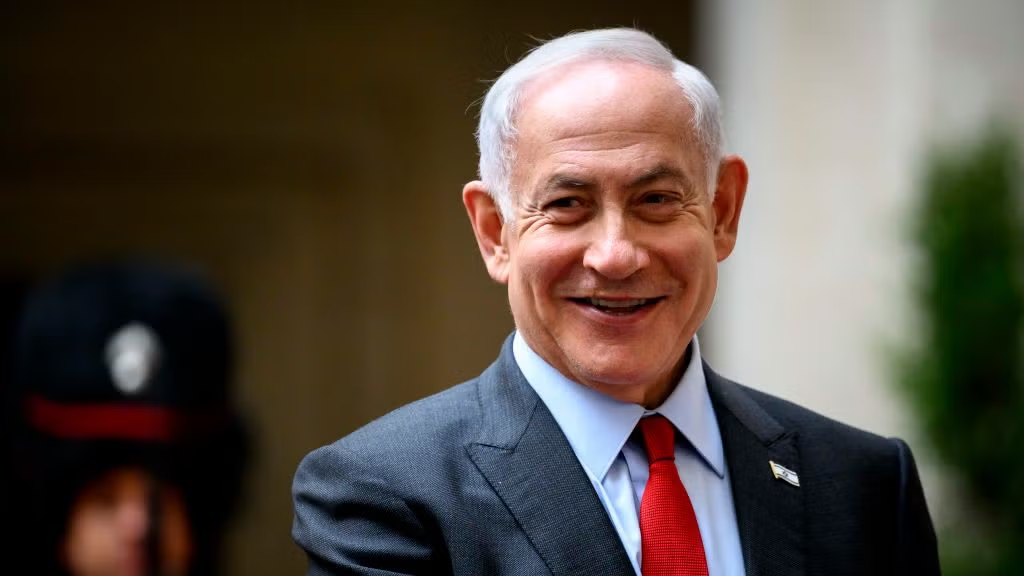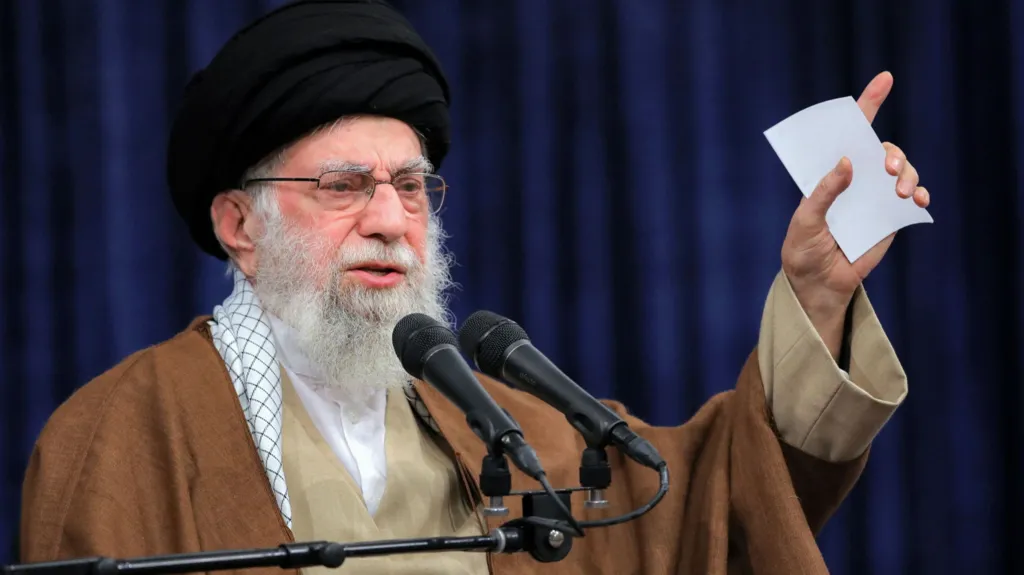The US has changed the course of the Iran conflict.

While Benjamin Netanyahu was standing at the platform in the office of the Israeli prime minister this morning, he did not initially address the Israeli people in Hebrew.
He did this in order to provide them with an update on the most recent and significant development in this, his most recent conflict.
Instead, he spoke in English, addressing President Donald Trump of the United States directly and lavishing praise upon him after the United States targeted nuclear targets in Iran following the attack.
It should not come as a surprise if Netanyahu’s tone was jubilant and his smile was hardly contained given the circumstances.
Over the course of the past fifteen years, Netanyahu has devoted a significant portion of his time to convincing his American partners that the only way to dismantle Iran’s nuclear weapons program is through military action, and only through the use of American munitions.
Netanyahu may congratulate himself on changing the thinking of a US president who campaigned against overseas military excursions and whose followers were strongly opposed to joining Israel’s battle against Iran.
While he is hailing Trump for a courageous move that “will change history,” Netanyahu can also congratulate himself on changing the mind of former US President Barack Obama.
Additionally, it is important to remember that the intelligence agencies that are under Trump’s control did not agree with Israel’s assessment of the speed with which Iran could attempt to construct a nuclear bomb, nor did they know whether Iran had made the decision to do so.
Both the Israeli government and the Israeli military have maintained throughout this crisis, which began only ten days ago, that Israel is capable of dealing with the Iranian threat on its own.
However, it was common knowledge that the United States was the only country in possession of the huge ordnance that was adequately equipped to deal with the highest levels of defence surrounding Iran’s nuclear installations, particularly at Fordo, which was constructed deep under a mountain.
If the nuclear sites that were struck yesterday night are now, in fact, no longer in operation, then the Prime Minister of Israel will be able to declare that his primary war objective has been accomplished, which might perhaps bring this conflict closer to a conclusion.
In its own defence, Iran asserts that it has already removed its nuclear material from the country. Otherwise, Israel would have continued to work its way down the lengthy list of targets that its air force has spent years writing up, but the bombing that occurred last night prevented that from happening.
Damage would have continued to be inflicted on the Iranian military, on its commanders, on nuclear scientists, on government infrastructure, and on the sections of the nuclear program that were accessible to Israel’s bombs after the attack.
On the other hand, it is possible that Netanyahu was not given a precise point at which Israel could assert that the nuclear threat had been definitively neutralised. It’s possible that only a change in the Iranian government could have brought about that moment.
There is no doubt that the B2 bombers have altered the course of the war. The manner in which Iran and its allies react will determine whether or not the situation becomes even more severe.
The supreme leader of Iran made a promise last week that he would strike back against the United States if it were to enter the conflict. “The Americans should know that any US military intervention will undoubtedly be accompanied by irreparable damage,” the Iranian supreme leader stated.
However, it wasn’t until Saturday that the Houthi organisation in Yemen, which is a firm ally of Iran, vowed to attack US ships that were travelling through the Red Sea in the event that the United States engaged the conflict.

People in the region, including members of the United States military, businesses, and civilians, are potentially possible targets. Should it choose to do so, Iran has the ability to retaliate in a variety of ways, including striking United States warships or bases in the Gulf region, which could potentially block the flow of oil from the Gulf region and cause the price of petrol to spiral upward.
The United States has made it clear that it is no longer interested in bringing down the government in Tehran and that its military operations has come to an end for the time being.






1 thought on “U.S. Alters Course of Iran Conflict — Tehran’s Retaliation Could Change Everything.”